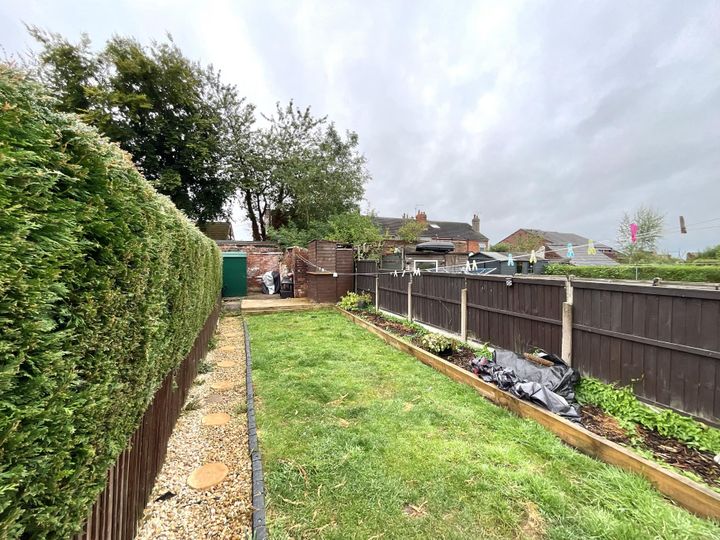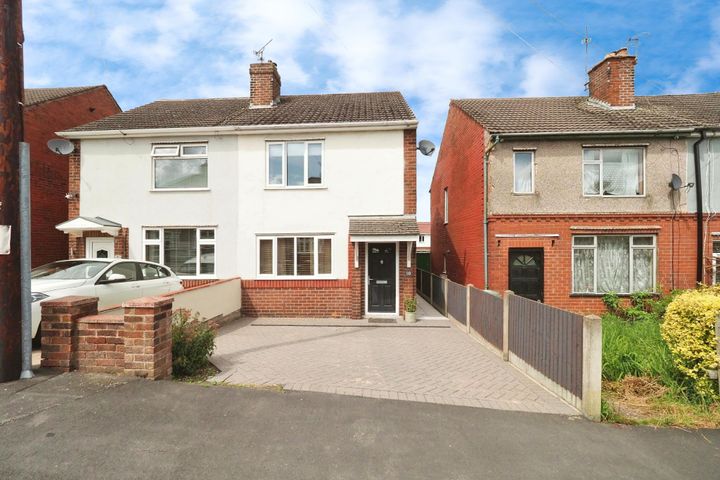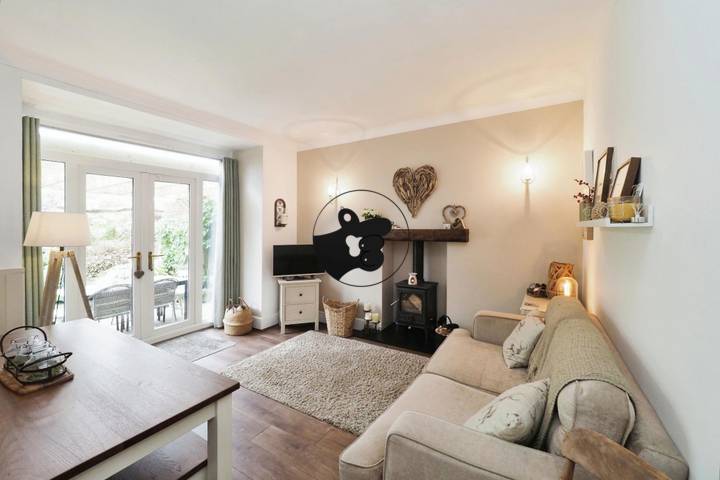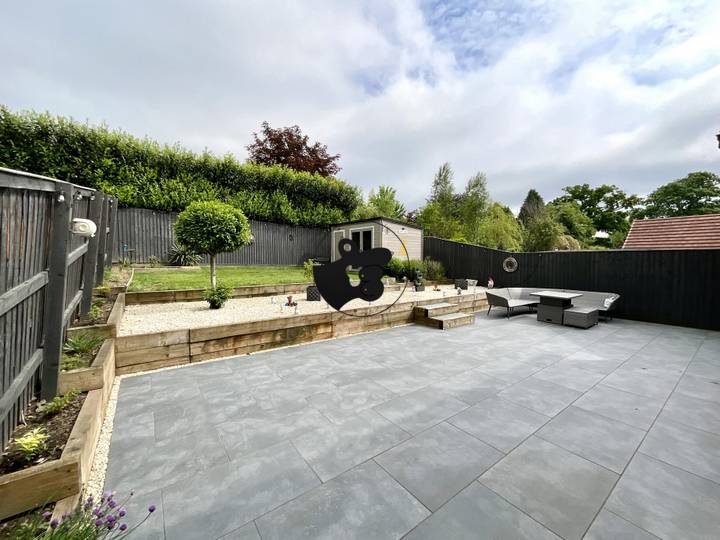Several factors influence real estate prices in Alfreton, reflecting both local and broader market dynamics. The proximity to amenities such as schools, parks, and transport links plays a significant role; properties near Alfreton train station, for instance, often command higher prices due to ease of commuting to nearby cities like Nottingham and Derby. The overall condition of the housing market in the East Midlands also affects prices—an increase in demand spurred by economic growth can lead to rising property values. Additionally, local developments, such as new housing projects or commercial ventures, can alter the desirability of certain areas. Historical elements, such as the appeal of period properties in conservation areas, can also impact valuations. The fluctuating interest rates and the availability of mortgages contribute to buyer affordability, further influencing the local real estate market. Lastly, community characteristics, including crime rates and public services, can sway buyer perceptions and, consequently, property values.
Alfreton
Location
Price Range
Any price
Price Range
Minimum
No min
Maximum
No max
Property type
Show all
Property type
Show all
House
Apartment
Building
Other
Bedrooms
Any beds
Bedrooms
Minimum
No min
Maximum
No max
Surface Range
Any surface
Surface Range
Minimum
No min
Maximum
No max
Sale type
For sale
Sale type
Show all
To rent
For sale
Location
Apartments and houses for sale in Alfreton
5 results
Recent
Alfreton insights
| Aspect | Summary |
|---|---|
| Population | Approximately 21,000 residents |
| Average Property Price | Around £200,000 |
| Rental Yield | 4.5% to 6% |
| Average Rent | Approximately £900 per month |
| Occupancy Rate | Estimated at 95% |
| Capital Growth Rate | 2% to 4% annually |
| Property Tax | Varies; average around £1,200/year |
| Transaction Costs | Approx. 3% to 5% of property price |
| Expected ROI | 6% to 10% per year |
| Economic Growth Impact | Moderate growth with local job opportunities |
Alfreton FAQ
What factors influence real estate prices in Alfreton?
How do Alfreton home prices compare to nearby towns?
Home prices in Alfreton tend to be more affordable compared to nearby towns such as Ripley and Heanor. As of late 2023, the average property price in Alfreton is approximately £200,000, while in Ripley, prices hover around £220,000, and in Heanor, they can reach £215,000. This price disparity is partly due to variations in amenities and local attractiveness; for instance, Ripley has a more extensive range of shops and recreational facilities, which can drive prices upward. Alfreton offers strong transport links and a blend of residential housing that appeals to first-time buyers or those looking for budget-friendly options. In contrast, towns like Belper see average home prices well above £300,000, reflecting their more sought-after status due to desirable features and community characteristics.
What is the average price of a house in Alfreton?
The average price of a house in Alfreton typically hovers around £180,000 to £210,000, depending on the specific area and property type. For instance, a two-bedroom terraced house in the town center might be priced around £150,000, while a three-bedroom semi-detached property could range from £200,000 to £230,000, particularly if it has been recently refurbished. Larger four-bedroom detached homes can command prices exceeding £300,000, especially if located in desirable neighborhoods. The local housing market reflects a mix of older Victorian and Edwardian properties alongside newer developments, influencing the overall average. Recent data shows that the market in Alfreton is quite dynamic, with some properties selling within days of being listed, indicating demand remains robust.
Are property prices in Alfreton increasing or decreasing?
Property prices in Alfreton have shown a mixed trend recently, with both increases and decreases depending on specific areas and property types. For instance, data from the past year suggest that the average property price in Alfreton has seen a slight uptick, with semi-detached homes experiencing a rise to around £200,000, compared to previous averages of £190,000. However, certain parts of the town, particularly those with older housing stock, have witnessed stagnation or even declines, as buyers prioritize more modern amenities in their home searches. Additionally, factors such as local economic conditions, school ratings, and proximity to transport links play significant roles in influencing buyer demand and, consequently, property values. In contrast, some newer developments on the outskirts have attracted interest, pushing prices higher. Overall, the property market dynamics in Alfreton illustrate a nuanced landscape influenced by various local factors.
What is the trend for real estate prices in Alfreton over the past few years?
Over the past few years, real estate prices in Alfreton have experienced a noticeable upward trend. According to recent market data, the average property price in the area increased by approximately 10% in the last year alone, with three-bedroom semi-detached homes often selling for around £190,000, up from £170,000 just a year prior. Popular neighborhoods, such as Alfreton Town Centre and surrounding suburbs, have seen even sharper increases, driven by factors such as improved transport links and the appeal of affordable housing compared to larger cities. Additionally, new developments, particularly modern housing estates, have attracted buyers, contributing to a competitive market. Investors have also shown interest, as rental prices have steadily risen, making Alfreton an attractive option for those seeking buy-to-let opportunities.
How does the local economy affect real estate prices in Alfreton?
The local economy in Alfreton plays a significant role in shaping real estate prices through various factors, including employment rates, income levels, and business activity. With a mixed economy that has historically relied on manufacturing and retail, economic stability often translates to higher demand for housing. For instance, when local employers like local manufacturing firms or retail stores are thriving, they tend to offer better wages, attracting more workers to the area, which increases competition for available properties. Furthermore, areas with new developments, such as housing estates or commercial centers, often experience a rise in property values due to the influx of potential buyers and renters seeking modern amenities. Conversely, economic downturns, such as factory closures or reduced consumer spending, can lead to job losses and decreased disposable income, ultimately depressing demand in the real estate market and causing property prices to stagnate or decline. Additionally, investments in infrastructure projects, such as road improvements or public transport enhancements, can elevate real estate values by making neighborhoods more accessible and desirable.
What amenities can impact the price of homes in Alfreton?
Several amenities can significantly impact the price of homes in Alfreton. Proximity to good schools, such as Alfreton Park Community School, often appeals to families, increasing demand and subsequently home prices in nearby areas. Local parks, like Alfreton Town Park, provide recreational space, enhancing neighborhood desirability. Additionally, access to essential services such as supermarkets, medical facilities, and public transport links, particularly to larger towns like Derby and Nottingham, plays a crucial role in property valuation. Furthermore, the presence of community centers and leisure facilities, like sports complexes, can attract buyers willing to pay a premium for convenience and lifestyle options. Finally, historical charm and proximity to cultural sites can also bolster home values, with buyers often drawn to the character of older properties in established neighborhoods.






